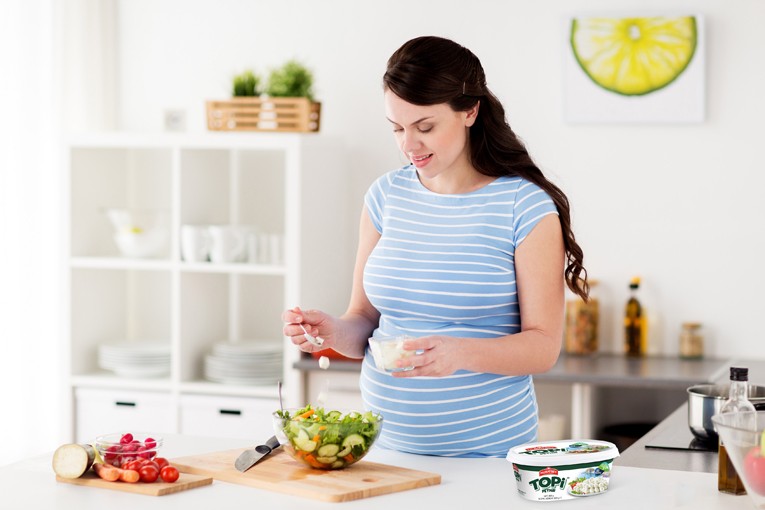
Nutrition during pregnancy is extremely important for your baby and your health. In particular, it is recommended that protein and calcium sources be included in the daily diet.
Prof. Dr. Muazzez Garipağaoğlu offers nutritional recommendations for expectant mothers. It also gives information about the consumption of cheese, rich in protein and minerals, during pregnancy.
Healthy nutrition is essential for a healthy pregnancy!
A child’s health is closely related to how his mother feeds him from the first day of his pregnancy to his second birthday. For this reason, the nutrition of the expectant mother during pregnancy becomes especially important for both her own health and the healthy development and growth of her unborn baby.
Pointing out that adequate and balanced nutrition has a critical role, especially when it comes to child and maternal health. Muratbey Nutrition Consultant Prof. Dr. Muazzez Garipağaoğlurecommends expectant mothers to consume foods rich in calcium, protein, vitamin D and folic acid.
Mother and baby need calcium!
Prof. stated that pregnant women should include variety in their diet (consume different types of foods) in order to be adequately nourished. Dr. Garipağaoğlu pointed out that especially protein and calcium are indispensable and said, “One of the most important minerals during pregnancy and breastfeeding periods is calcium. When sufficient calcium cannot be taken during these periods, the exchangeable calcium at the bone ends is mobilized and the baby’s needs are met.
This condition, which causes softening of the mother’s bones, is called Osteomalasia (bone softening). Prolonged calcium deficiency leads to osteoporosis (bone destruction) in later life. Therefore, calcium consumption is very important, especially during pregnancy. “These risks can be reduced by women consuming appropriate amounts of milk, yoghurt, and especially cheese during critical periods such as pregnancy and breastfeeding,” he said.

When choosing cheese, pay close attention to its ingredients!
Stating that cheese is a dairy product that best and easily meets the quality protein, calcium and many useful nutrients needed during pregnancy, Prof. Dr. Garipağaoğlu said, “Vitamin D, which the body cannot produce on its own, is also important for pregnant women. Vitamin D, which is not found naturally in foods, has a critical role in settling calcium into bones. The main source of vitamin D is sunlight. It is found very little in foods. If sunlight cannot be used sufficiently, vitamin D must be taken into the body as an external supplement or through enriched foods. “Regularly consuming cheeses enriched with vitamin D provides an advantage in terms of meeting vitamin D as well as protein and calcium,” he said.
Consume low-fat and salty cheeses
Prof. Recommends choosing low-fat, low-salt cheeses for health reasons. Dr. Garipağaoğlu states that “Low-fat cheeses help control weight during pregnancy and breastfeeding, and low-salt cheeses help reduce the risk of blood pressure. “In addition to cheese and dairy products, bread and cereals, seasonal fresh vegetables and fruits, meat, chicken, fish, eggs, legumes, nuts and dried fruits should be consumed in recommended amounts during pregnancy,” he said.

